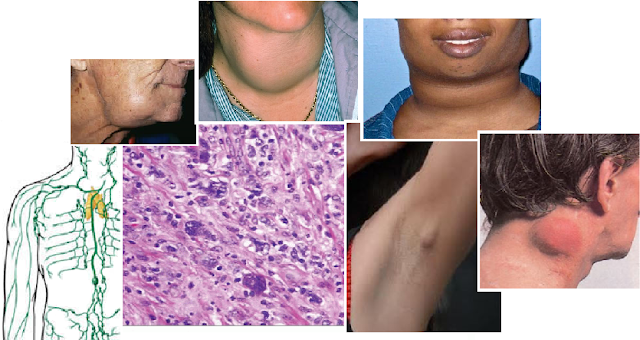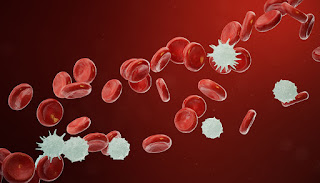Hormone Therapy ~ Dr. Manish Sharma
About hormone treatment
Hormone treatment is a type of foundational treatment—a method of overseeing drugs so they travel all through the body, as opposed to being conveyed legitimately to the malignancy—that attempts to include, square, or expel hormones from the body to slow or stop the development of disease cells. At Rajiv Gandhi Cancer Institute and Research Center, Block K, Neeti Bagh, New Delhi, India Dr. Manish Sharma Cancer specialist doctor in Delhi. we use hormone treatment to battle different kinds of diseases.
Hormones are known as the body's substance delivery people and are created in the endocrine organs, which incorporate organs, for example, the thyroid, pancreas, ovaries in ladies, and testicles in men. A few hormones energize the development of certain malignant growths, for example, bosom and prostate. Be that as it may, at times, they may kill, slow, or prevent malignant growth cells from developing. Dr.Manish Sharma best oncologist in Delhi has always a second opinion for cancer treatment.
Hormone treatment drugs
Hormone treatment normally includes taking meds that keep malignancy cells from getting the hormones they have to develop. Sometimes, your primary care physician may carefully expel the organ answerable for hormone creation. Our doctors may utilize hormone treatment in blend with other malignant growth medicines, for example, chemotherapy and radiation treatment.
*Here is some oftentimes utilized hormone treatment tranquilizes that treat regular disease types:
Abiraterone (Zytiga): Prostate disease
Anastrozole (Arimidex): Bosom malignant growth
Exemestane (Aromasin): Bosom malignant growth
Fulvestrant (Faslodex): Bosom malignant growth
Letrozole (Femara): Bosom malignant growth
Leuprolide (Eligard, Lupron Depot): Bosom malignant growth, prostate disease, uterine malignancy
Tamoxifen (Nolvadex): Bosom malignant growth
Since this treatment meddles with the working of explicit hormones in the body, contingent upon the kind of disease and explicit medication managed, prescriptions may cause reactions. Hormone treatment drugs taken to treat prostate malignant growth, for instance, may cause erectile brokenness. For ladies taking hormone treatment drugs, symptoms may incorporate vaginal dryness. Other likely reactions to hormone treatment drugs include:
Hot flashes
Loss of bone thickness
Loss of drive
Weight gain
Emotional episodes
Weakness
Queasiness and regurgitating
Your primary care physician may help decide if hormone treatment might be a decent treatment alternative for you, considering your particular malignant growth type, treatment objectives, and individual inclinations. The individual likewise may prescribe strong consideration treatments intended to help forestall and oversee symptoms. Psyche body medication, for example, may help with closeness gives that emerge while taking hormone treatment drugs, and an enlisted dietitian may structure a feast intend to help with wholesome difficulties originating from the treatment.
*Hormonal treatment is one of the significant modalities of clinical treatment for the disease at Dharamshila Malignancy Best Cancer Specialist Doctor in Delhi. It includes the control of the endocrine framework through the organization of explicit hormones, especially steroid hormones, or medications that restrain the creation or action of such hormones (hormone foes). Since steroid hormones are amazing drivers of quality articulation in certain malignant growth cells, changing the levels of movement of specific hormones can make certain tumors quit developing, or even experience cell demise. Careful evaluation of endocrine organs, for example, orchiectomy (expulsion of testicles) and oophorectomy (evacuation of ovaries) are additionally a type of hormonal treatment.
Hormonal treatment is utilized for a few sorts of malignancies got from hormonally responsive tissues, including the bosom, prostate, endometrium, and adrenal cortex. Hormonal treatment may likewise be utilized in the treatment of paraneoplastic conditions or to improve certain diseases and chemotherapy-related side effects, for example, anorexia.
1. Medications which hinders the hormone blend:-
a) Aromatase inhibitors
b) GnRH Simple
a) Aromatase inhibitors
Aromatase inhibitors are a significant class of medications utilized for the treatment of bosom disease in postmenopausal ladies. At menopause, estrogen creation in the ovaries stops, however different tissues keep on delivering estrogen through the activity of the chemical aromatase. These medications obstruct this catalyst ′aromatase′ and consequently, square annihilates creation.
Letrozole and anastrozole are two fundamental medications of this class
b) GnRH analogs:-
This Class of medications are utilized to prompt a concoction maiming, that is, finished concealment of the creation of estrogen and progesterone from the female ovaries, or complete concealment of testosterone creation from the male testicles. This is because of a negative criticism impact of constant incitement of the pituitary organ by these hormones. Leuprolide and goserelin are instances of these medications which are utilized basically for the treatment of hormone-responsive prostate disease.
2. Hormone receptor enemies
Hormone receptor enemies tie to the typical receptor for a given hormone and forestall its initiation. These incorporate 2 principle faction of medications:-
a) Specific estrogen receptor modulators (SERMS)
Specific estrogen receptor modulators (SERM′s) are a significant class of hormonal treatment operators which go about as foes of the estrogen receptor and are utilized essentially for the treatment and chemoprevention of bosom disease for example tamoxifen
b) Antiandrogens
Antiandrogens are a class of medication which tie and repress the androgen receptor, hindering the development and endurance advancing impacts of testosterone on certain prostate malignant growths. Flutamide and bicalutamide are antiandrogens which are every now and again utilized in the treatment of prostate disease, either as long haul monotherapy or in the underlying barely any long stretches of GnRH simple treatment.
3. Hormone supplementation
While most hormonal treatment techniques try to square hormone motioning to malignancy cells, there are a few occurrences wherein supplementation with explicit hormone agonists may have a development repressing or even cytotoxic impact on tumor cells.
a) Progestagens
Progestins (progesterone-like medications, for example, megestrol and medroxyprogesterone have been utilized for the treatment of hormone-responsive, propelled bosom malignant growth, endometrial disease, and prostate disease.
b) Androgens
The androgen (testosterone-like medication) Fluoxymesterone is at times utilized for the treatment of cutting edge bosom malignant growth.
c) Estrogens
The estrogen agonist Diethylstilbestrol (DES) is at times used to treat prostate malignant growth through concealment of testosterone creation.
d) Somatostatin analogs(Octreotide)
It is utilized for concealment of the hormonal disorder which goes with a few pancreatic islet cell tumors, including the Zollinger-Ellison condition of gastrinoma and the incessant hypoglycemia of insulinoma. It is likewise successful in the concealment of the carcinoid condition, brought about by cutting edge or extra-gastrointestinal carcinoid tumors. Octreotide may likewise be utilized for the treatment of serious loose bowels brought about by 5-fluorouracil chemotherapy or radiation treatment.
4. Non-clinical hormonal intercessions
Careful maiming, or evacuation of the testicles in guys and ovaries in females, have been generally utilized in the past to treat hormone-responsive prostate disease and bosom malignancy separately. In ladies at high hazard for bosom malignancy and ovarian disease because of transformations in the BRCA1 or BRCA2 qualities, respective salpingo-oophorectomy (evacuation of the fallopian cylinders and ovaries) forestalls ovarian disease, yet decreases their future hazard for bosom disease by lessening lifetime estrogen presentation.
Consult with Dr. Manish Sharma Best Oncologist In Delhi.






Comments
Post a Comment